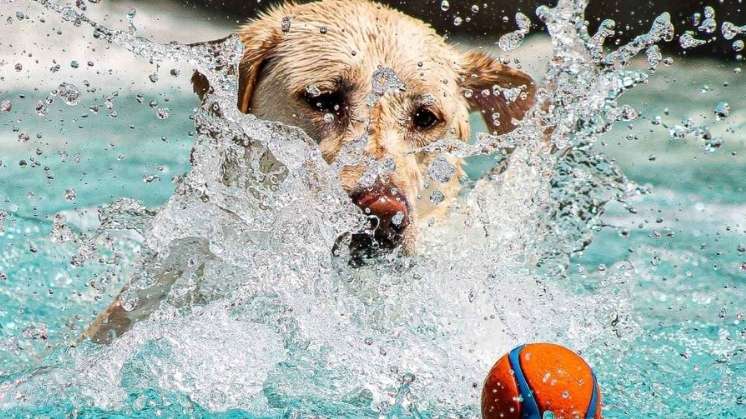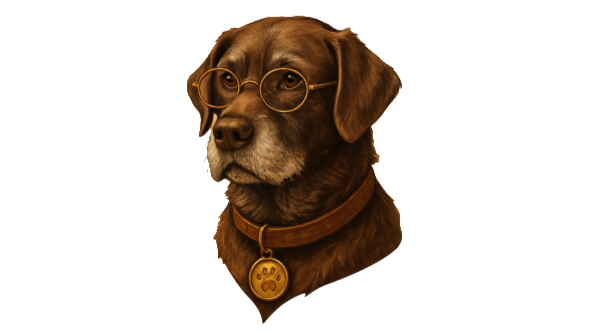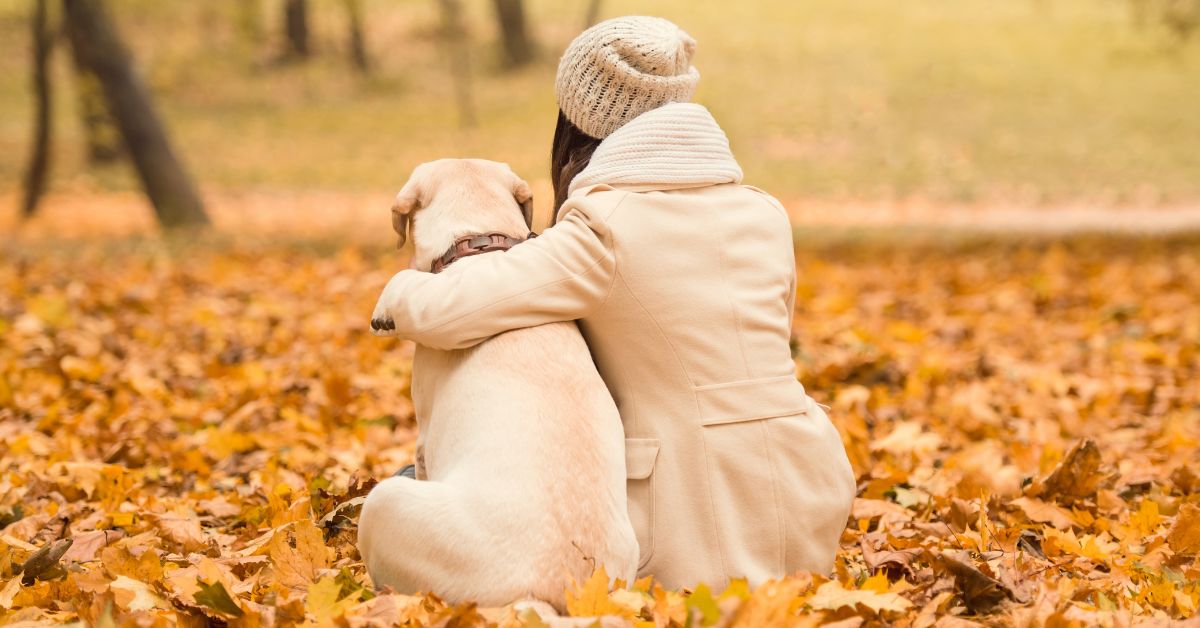
Why Your Senior Labrador Still Needs to Play Fetch
Watching your once-zoomie Labrador ease into his golden years can tug at the heart—especially when his favorite game, fetch, now lasts ten tosses instead of fifty. Those endless afternoon sessions of high-energy retrieving that defined your younger Lab's daily routine may seem like distant memories as you notice him moving more slowly, taking longer to get up from his favorite sleeping spot, or showing less enthusiasm for the tennis ball that once sent him into pure ecstasy.
But don't retire the ball yet! Modified fetch remains one of the safest, most rewarding ways to protect mobility, manage weight, and deepen the human-dog bond with your aging companion. When adapted thoughtfully for senior dogs, fetch transforms from a high-impact, intensive activity into a gentle, therapeutic exercise that addresses multiple aspects of senior Labrador health and well-being.
The key lies in understanding how to modify this beloved activity to match your senior Lab's changing physical capabilities while maintaining the mental stimulation and joy that makes fetch such a perfect game for this intelligent, retrieving breed. With the right approach, you can continue this cherished tradition well into your Lab's golden years, providing both physical and emotional benefits that contribute significantly to their quality of life.
Understanding Senior Labrador Retriever Exercise Needs
Before diving into the specific benefits of modified fetch, it's important to understand how exercise requirements change as Labradors age. Senior Labs, typically those 7 years and older, experience decreased joint flexibility, reduced muscle mass, slower recovery times, and often deal with conditions like arthritis or hip dysplasia that can make traditional high-impact activities painful or potentially harmful.
However, the need for physical activity doesn't disappear with age—it simply requires a more thoughtful approach. Senior dogs actually benefit tremendously from regular, gentle exercise that maintains muscle tone, supports joint health, and provides essential mental stimulation. The challenge lies in finding activities that provide these benefits without causing strain, pain, or exhaustion.
This is where modified fetch becomes invaluable. Unlike long walks that might become too demanding, or swimming that isn't always accessible, fetch can be easily adapted to any senior dog's specific needs and capabilities while still engaging their natural retrieving instincts.
1. Low-Impact Motion That Lubricates Joints
Light, repetitive trotting encourages synovial fluid circulation—your dog's natural joint oil—to flow more freely throughout the joint spaces. Think of it as nature's WD-40, helping ease stiffness from arthritis or hip dysplasia that commonly affects aging Labradors. This gentle lubrication process is crucial for maintaining joint health and reducing the daily discomfort that many senior dogs experience.
The beauty of modified fetch lies in its ability to promote this beneficial joint movement without the jarring impacts associated with high-speed running or sudden directional changes. When your senior Lab moves at a comfortable trotting pace to retrieve a gently thrown ball, each step helps pump synovial fluid through the joint capsules, delivering nutrients to cartilage and removing waste products that can contribute to inflammation and pain.
Enhanced Joint Care Strategies: Swap hard plastic chuck-it balls for soft, oversized rubber or plush discs that don't jar aging teeth or jaws. Consider balls specifically designed for senior dogs, which are often larger, softer, and easier to pick up without straining the neck or jaw muscles. Rope toys or soft frisbees can also work wonderfully for dogs who prefer different textures or have dental sensitivities.
Pro tip: Look for balls with varied textures or gentle bumps that can provide mild gum massage while being carried, potentially helping with dental health—another common concern for senior dogs.
2. Controlled Cardio for Healthy Weight Management
Senior Labradors pack on pounds easily due to slower metabolisms and often reduced activity levels; even two extra kilograms can significantly stress elbows and hips that are already dealing with age-related wear. Weight management becomes critical for senior dogs, as excess pounds exponentially increase the strain on joints, potentially accelerating arthritis progression and reducing overall mobility.
Ten slow retrieves on grass can burn as many calories as a brisk 15-minute walk, but with much happier tail-wag ratios and less stress on aging joints. This controlled form of cardio allows you to provide excellent exercise while carefully monitoring your dog's exertion level and response.
Keep it gentle with these guidelines:
- Avoid throwing downhill - while it might seem easier for your dog to run downhill, the uphill return journey can strain knees and hip joints unnecessarily
- Skip concrete surfaces - choose grass, artificial turf, sand, or other soft surfaces that provide cushioning and better traction
- Monitor intensity - aim for a comfortable trotting pace rather than all-out sprinting
- Adjust distance based on your dog's response - some days may call for shorter throws, others might allow for slightly longer distances
Weight Management Benefits: Regular, gentle fetch sessions help maintain muscle mass while burning calories, creating an ideal combination for healthy weight management. The controlled nature of the exercise allows you to precisely adjust the intensity based on your dog's current fitness level and any health considerations.
3. Mental Stimulation Beats Boredom Blues
Aging brains benefit tremendously from problem-solving activities, and fetch provides multiple cognitive challenges: "Where did it land?" "How do I carry it back?" "Should I bring it directly to my human or take a detour?" Studies show that short, mentally engaging play sessions can help slow cognitive decline in senior dogs, making modified fetch both physically and mentally therapeutic.
The cognitive benefits of fetch extend beyond simple retrieval. Each throw presents a new puzzle for your senior Lab to solve, engaging spatial reasoning, memory, and decision-making skills. This mental exercise is particularly important for aging dogs, as cognitive decline can significantly impact their quality of life and overall well-being.
Enhance mental stimulation by varying the game:
- Alternate colors - use different colored balls (yellow, blue, red) to engage visual processing
- Introduce scents - try frozen broth-scented toys or balls with different textures to engage the powerful Lab nose
- Vary distance - mix short 5-foot tosses with longer 20-foot throws to keep things unpredictable
- Change locations - rotate between different areas of your yard or safe outdoor spaces
- Add training elements - incorporate "wait," "find it," or "bring it here" commands to increase cognitive engagement
Cognitive Health Benefits: Regular mental stimulation through modified fetch can help maintain neural pathways, potentially delaying the onset of canine cognitive dysfunction (similar to dementia in humans). The combination of physical movement and mental challenge creates an ideal brain-training exercise for senior dogs.
4. Deeper Bond During Slower Days
Your dog still reads your body language and praise cues with the same accuracy and enthusiasm as in his younger years. A gentle round of fetch with extra "good boy!" moments floods him with the same oxytocin surge that made puppyhood magical—just without the sore joints afterward. This bonding aspect becomes even more precious as dogs age and may spend more time resting.
The slower pace of senior fetch actually allows for more meaningful interaction between you and your Lab. Instead of frantically throwing ball after ball, you have time to observe his movement, celebrate each successful retrieve, and provide the patient encouragement that senior dogs often crave.
Bonding Enhancement Strategies:
- Increase verbal praise - senior dogs often appreciate more vocal encouragement
- Use gentle physical contact - light petting or gentle massage after retrieves
- Maintain eye contact - take time to really connect with your dog during the activity
- Celebrate small victories - acknowledge effort, not just speed or distance
- Practice patience - allow your senior Lab to move at his own comfortable pace
Emotional Benefits: The emotional rewards of modified fetch extend to both dog and human. For your Lab, the activity provides structure, purpose, and the satisfaction of successfully completing a task he's been bred to excel at. For you, it offers the joy of continued play with your aging companion and the peace of mind that comes from providing beneficial exercise in a safe, controlled manner.
5. Safety Checklist for Senior-Friendly Fetch
Ensuring safety during fetch sessions becomes paramount when playing with senior dogs. Their bodies are less resilient than younger dogs, and recovery from injuries takes significantly longer. However, with proper precautions, fetch can remain a safe and enjoyable activity throughout your Lab's golden years.
Comprehensive Safety Protocol:
| Check | Why it Matters | Implementation Tips |
|---|---|---|
| 5-minute warm-up walk | Increases muscle elasticity and blood flow, significantly reducing injury risk | Start with slow, gentle movement around the yard or a short leash walk |
| Soft, non-slip surface | Cushions joints and prevents dangerous slips that could cause serious injury | Grass, artificial turf, or sand; avoid wet or icy surfaces |
| Low, arcing throws (≤20 ft) | Keeps speed moderate; prevents dangerous sprint-and-slam scenarios | Practice gentle, underhand tosses rather than overhead throws |
| Rest every 5–7 tosses | Allows heart rate to normalize and prevents overexertion | Use rest periods for praise, gentle petting, or simply quiet bonding time |
| Watch post-play gait | Limping or excessive panting indicates session was too intense | Monitor for 30 minutes after play; adjust future sessions accordingly |
| Hydration breaks | Senior dogs regulate temperature less efficiently | Provide fresh water access, especially during warmer weather |
| Weather considerations | Extreme temperatures affect senior dogs more severely | Avoid fetch during very hot or cold conditions |
Additional Safety Considerations:
- Know your dog's limits - some days will be better than others for physical activity
- Have a first aid kit accessible - basic supplies for minor scrapes or injuries
- Maintain regular veterinary checkups - ensure your dog is healthy enough for even gentle exercise
- Consider joint supplements - discuss with your vet whether glucosamine or other supplements might benefit your senior Lab
- Monitor for signs of discomfort - heavy panting, reluctance to continue, or changes in gait
Conclusion: Embracing the Golden Years Through Play
Modified fetch represents more than just adapted exercise—it's a bridge between your Lab's energetic youth and comfortable senior years. By thoughtfully adjusting this beloved activity to match your aging companion's needs, you're providing invaluable physical therapy, mental stimulation, weight management, and emotional connection all wrapped into one enjoyable package.
The key to successful senior fetch lies in flexibility, patience, and close observation of your dog's responses. Some days may call for shorter sessions, gentler throws, or extended rest periods. Other days might surprise you with your senior Lab's renewed enthusiasm and energy. The goal isn't to recreate the intensity of younger years, but rather to maintain the joy, connection, and physical benefits that make fetch such a perfect activity for Labradors of any age.
Remember that every senior Lab is unique, with individual capabilities, health considerations, and preferences. What works beautifully for one dog may need modification for another. The most important factor is maintaining open communication with your veterinarian and staying attuned to your dog's changing needs and responses.
By embracing modified fetch as part of your senior Lab's routine, you're not just helping them stay physically healthy—you're honoring their retrieving heritage, supporting their mental well-being, and ensuring that the golden years remain truly golden, filled with gentle play, loving connection, and the timeless joy of a job well done.
📸 Photo Credits: Featured images in this article are licensed from Shutterstock



